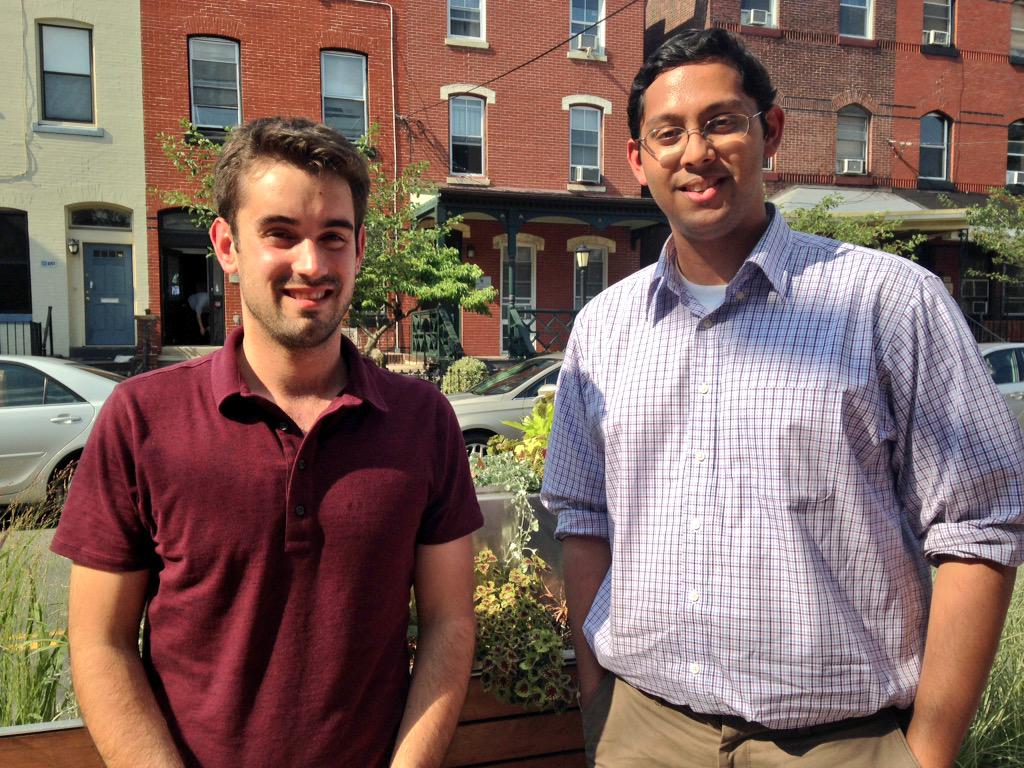David Lindsay didn’t start out with entrepreneurial dreams. It didn’t even seem possible to him, or his parents, either.
When he told them about his plans to launch a health IT startup, his parents thought it was laughable — not in a condescending way, just because it was unheard of. Lindsay, 25, a native of a small town in New Hampshire, had always associated entrepreneurship with tech billionaires until he took a class at Penn on medical devices that made him realize that he could launch his own company, too.
Now he’s running a radiation oncology analytics company, backed by the Dorm Room Fund and other Penn-related grants, that’s running pilots in three hospitals.
Lindsay is not your typical student entrepreneur: he’s five years into a rigorous, selective program at Penn’s medical school for students that want to get their M.D. and Ph.D. concurrently. It’s a program that takes around seven years or more to complete, and every participating student is on full scholarship, backed in part by the National Institutes of Health. It’s meant to train what the industry calls “physician scientists” — those who can pair the research of an academic with the practical skills of a doctor.
That’s why Lindsay, who’s getting his Ph.D. in bioengineering, thinks it’s a tailor-made program for entrepreneurs. It’s a perfect mix of theoretical and practical that helps you identify a problem in the healthcare industry and then empowers you to develop a way to fix it, he said.
You also can’t beat the Penn infrastructure. It’s a short walk from the Hospital of the University of Pennsylvania to the engineering school to First Round Capital, where he sometimes spends his days working.
There’s at least two companies run by M.D./Ph.D. candidates at Penn: Lindsay’s Oncora Medical and Lohith Kini’s pre-launch Stethosaurus, a marketplace to match doctors with open shifts. Stethosaurus’s founding team is made up for three M.D./Ph.D.s at Penn, plus one cofounder who got his M.D. and is now pursing his MBA.
Penn has about 20 M.D./Ph.D.s per year, totaling more than 180 currently enrolled. It’s one of the biggest M.D./Ph.D. programs in the country.
Their experience is also representative of the entrepreneur-friendly attitude Penn says it’s adopting.
Lindsay said his advisor has been nothing but supportive of his venture. In the old mindset, a Ph.D. student starting a company would be frowned upon, Lindsay said, because Ph.D.s are supposed to spend “every waking moment of [their] life in the lab.”
There are still bureaucratic headaches, like filing paperwork with Penn’s tech transfer office to declare that Penn doesn’t have any stake in a company’s intellectual property. Lindsay, who’s worked on Oncora on his own time, said that paperwork was a barrier to entry. He was fortunate enough to find an engineering professor who helped him with the process.
This type of student entrepreneurship feels more extreme than the kind you see with undergrads or MBAs because the M.D./Ph.D. program is a much bigger time and mental commitment — the program is a “nonstop barrage of [unstructured] work,” Lindsay said. Kini and Lindsay both said they plan on finishing the program, though Lindsay said he may take a leave of absence before graduating.







